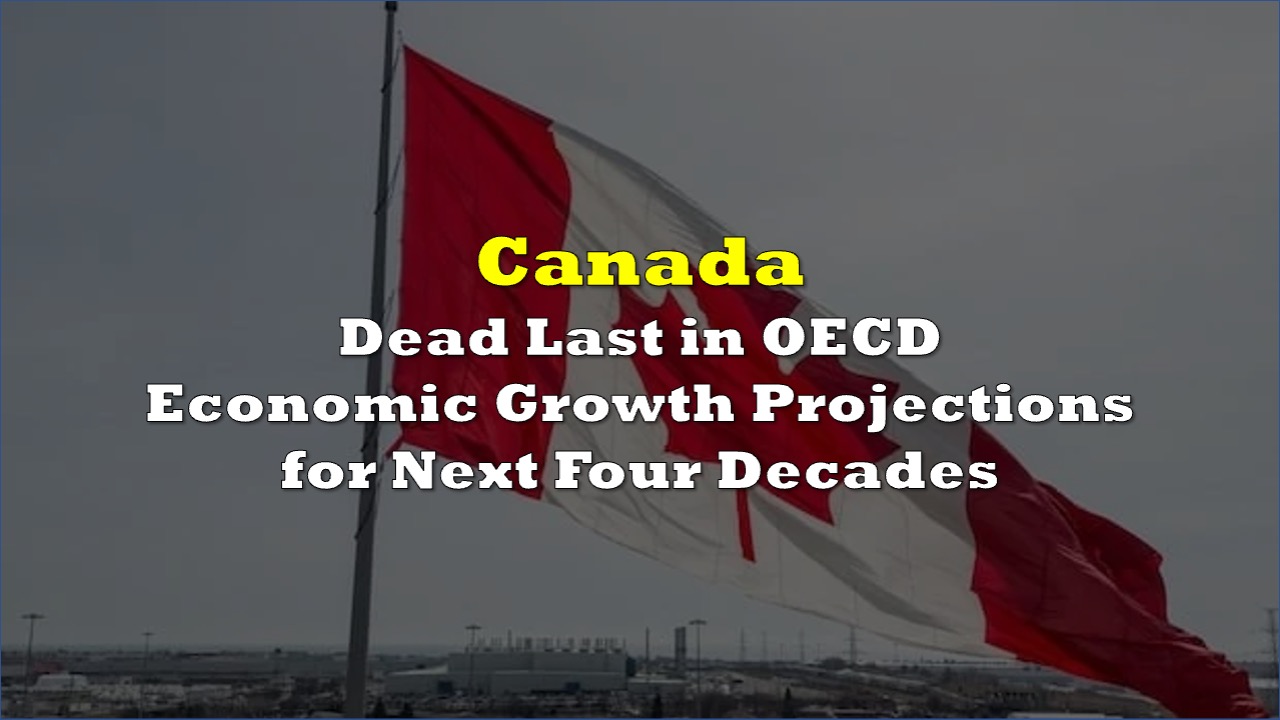Long-term forecasts from the Organization for Economic Co-operation and Development show Canada will post the weakest per capita economic growth among developed nations for the next four decades.
The OECD forecasts Canada will see real GDP per capita expand by just 0.7% annually from 2020 to 2030, ranking it last among the organization’s 38 member countries, tied with Italy. Canada’s projected growth rate falls 46% short of the OECD average and lags the United States by 42%.
The outlook remains grim beyond 2030. The forecasts show Canada will continue trailing all advanced economies from 2030 to 2060, with annual per capita growth of 0.8%, keeping the country at or near the bottom throughout the period.
The latest OECD forecast shows that Canada will be last in GDP per capita by 2030 among 40 OECD countries."
— Brad Rush. (@AlbertaBound9) October 14, 2025
And well below the OECD average.
From @MPelletierCIO pic.twitter.com/Hre4JCqLNC
Low productivity growth presents the central challenge behind these projections, according to the OECD analysis. The organization forecasts Canada will record the slowest labor productivity gains among advanced countries throughout the period.
While these comprehensive long-term projections were published in 2021 and represent the most recent OECD forecasts extending to 2060, Canada’s actual economic performance has fallen short of even these pessimistic expectations. Between 2020 and 2024, reality proved worse than the projections anticipated.
Between 2020 and 2024, per capita GDP in Canada contracted by 2%, marking the sharpest five-year decline since the 1930s economic collapse, according to research from the Fraser Institute. Most other G7 nations, with the exception of Germany, have returned to or surpassed their pre-pandemic per capita GDP levels.
Related: Are Tariffs The Real Reason Canada’s Economy Is Failing?
Business capital investment has remained subdued following the 2014 collapse in oil prices, reducing the capital available per worker. Meanwhile, elevated immigration expanded the population without matching productivity increases, further straining per capita metrics.
The Business Council of British Columbia, analyzing the OECD data, cautioned that young Canadians now entering the labor market face the prospect of largely stagnant real wages throughout their careers — a sharp departure from the rising living standards earlier generations experienced.
Information for this story was found via the sources and companies mentioned. The author has no securities or affiliations related to the organizations discussed. Not a recommendation to buy or sell. Always do additional research and consult a professional before purchasing a security. The author holds no licenses.









